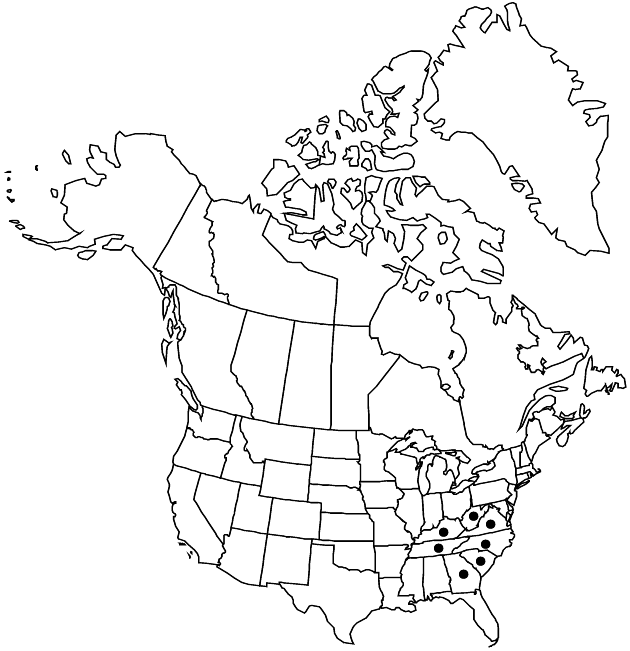familyAsteraceae
genusSolidago
sectionSolidago sect. Solidago
subsectionSolidago subsect. Glomeruliflorae
speciesSolidago curtisii
Difference between revisions of "Solidago curtisii var. curtisii"
Synonyms: Solidago caesia var. hispida
Treatment appears in FNA Volume 20. Treatment on page 127.
FNA>Volume Importer |
FNA>Volume Importer |
||
| Line 46: | Line 46: | ||
|publication year= | |publication year= | ||
|special status= | |special status= | ||
| − | |source xml=https://jpend@bitbucket.org/aafc-mbb/fna-data-curation.git/src/ | + | |source xml=https://jpend@bitbucket.org/aafc-mbb/fna-data-curation.git/src/f50eec43f223ca0e34566be0b046453a0960e173/coarse_grained_fna_xml/V19-20-21/V20_256.xml |
|tribe=Asteraceae tribe Astereae | |tribe=Asteraceae tribe Astereae | ||
|genus=Solidago | |genus=Solidago | ||
Revision as of 21:26, 16 December 2019
Proximal midcauline leaf blades broadly lanceolate, sparsely hairy. 2n = 18, 36, 54.
Phenology: Flowering (late Aug–)Sep–Oct.
Habitat: Shaded mesic woods and thickets, mostly Appalachian Mountains
Elevation: 300–1200+ m
Distribution

Ga., Ky., N.C., S.C., Tenn., Va., W.Va.
Discussion
Sparsely hairy plants of var. curtisii tend to have narrower leaves. They are most common at mid to high elevations in the Appalachian and Blue Ridge mountains.
Selected References
None.
Lower Taxa
None.